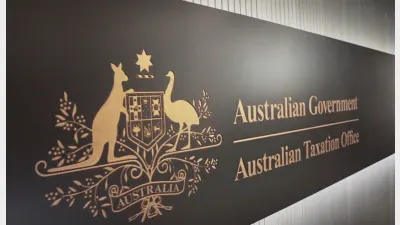Editorial: Taxing times for govt
The Federal Government can take a bow. The latest IUS/Super Review Super Outlook survey, details of which are published in this month’s edition, reveals that, by and large, people working within the superannuation industry have been happy with the various changes and reforms implemented throughout 2005.
Not unnaturally, the survey respondents were particularly happy with respect to those changes that reduced tax and regulatory burdens, and actually encouraged people to increase their retirement savings.
But the survey also contained a clear message for the Government. The job is not yet done. The Government needs to go further, particularly with respect to tax reform. Indeed, tax has once again emerged as the single biggest issue of concern for superannuation industry participants.
This is not surprising. Super Review has been conducting this particular survey for nearly two years, and in each survey a strong majority of respondents have made it clear that tax is the single biggest issue of concern facing the superannuation industry.
How big of a concern is tax to the industry? Well, according to our survey, 100 per cent of respondents believe that it is of moderate to major importance. In fact, 48.7 per cent of respondents believe it is of major importance. A message cannot be any more clear-cut than that.
It is a message also reflected in the Association of Superannuation Funds of Australia’s (ASFA) latest pre-Budget submission, which argues for “the abolition or substantial reduction in the tax levied on employers and other tax deductible contributions to superannuation funds”.
ASFA argues that it is now nearly 20 years since the tax on contributions was introduced, and the economic and social environment now allows and indeed requires the abolition of this tax. Its submission states that: “The tax cut proposed at a cost of $3.3 billion a year is now affordable given the current budgetary situation, and it is needed in order to boost the retirement savings of an ageing population.”
These are worthy arguments on the part of ASFA but, of course, nobody really believes that the Federal Government will move substantially to reduce the tax burden on superannuation in the life of the current Parliament. Why? Because, notwithstanding the need to ensure Australians provide more adequately for their retirement, superannuation continues to represent a substantial revenue cash cow. Perhaps even more importantly, the Government seems to believe it can maintain a balance between maintaining tax revenues and encouraging people to save for their retirements. The Government’s co-contributions regime has certainly gone some way towards meeting this objective, as has its pre-retirement pensions regime.
Ultimately, however, this Government or its successor will have to do more about encouraging Australians to save for their own retirements, and that will have to involve reducing the tax burden to ensure superannuation becomes a more attractive investment option for Australians.
According to a number of commentators, 2006 represents a year in which a particularly large number of baby boomers will begin taking retirement. It will be interesting to see whether the impact of those retiring baby boomers will cause the Government to rethink its position on superannuation and tax.
Recommended for you
Super funds are strengthening systems and modelling member benefits ahead of payday super.
The Australian Taxation Office (ATO) has approved real-time payments for superannuation, removing a major hurdle ahead of payday super reforms.
The investment body has raised questions about ART’s Tabcorp shareholding, urging clarity for members on gambling-related super fund investments.
Australian super funds have posted early gains in FY26, driven by strong share market performance and resilient long-term returns.











